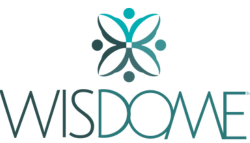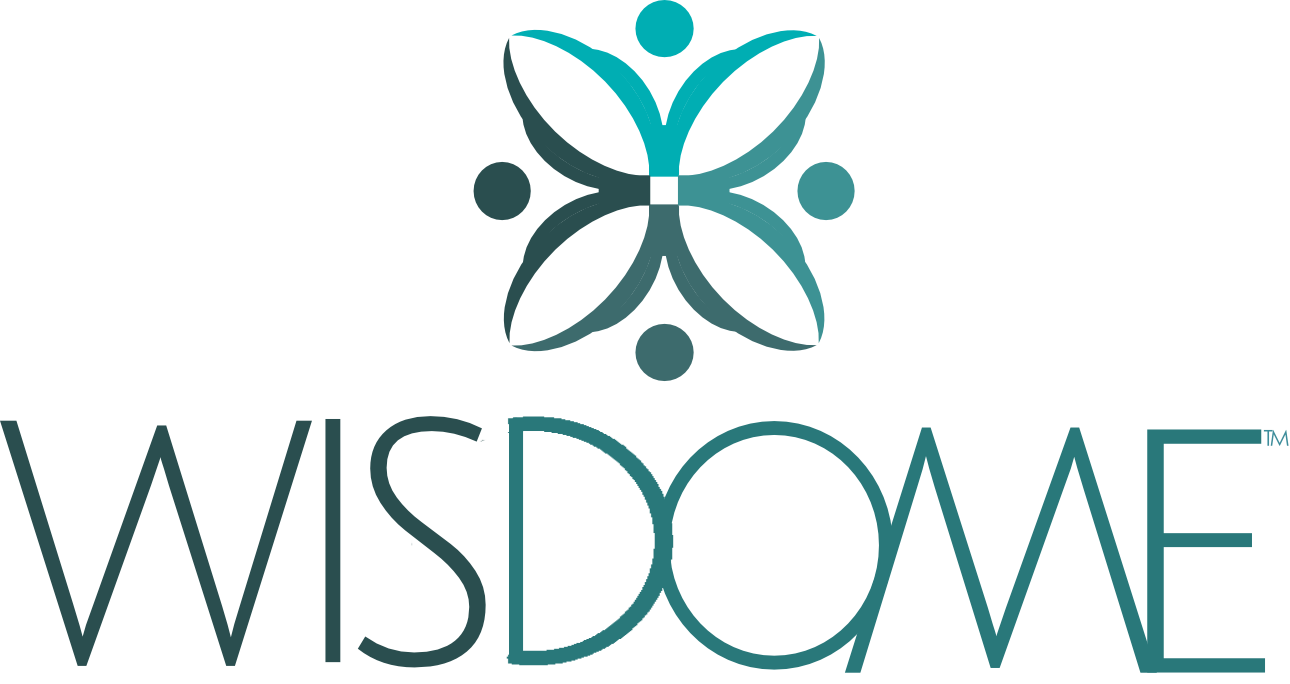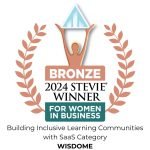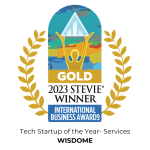Self-assessment is the process of analysing and evaluating ourselves in our pursuit to make sense of our inner workings. It helps us recognise our abilities and understand how much we can achieve. In this article, we’ll explore ways to embrace what we’re good at, achieve professional growth and enhance our leadership skills.
2 Remarkable Benefits of Self-Assessment
First, let’s explore reasons self-assessment is essential for personal growth and professional development.
Improved Self-Awareness and Understanding
Enhanced self-awareness is like turning on a light in a dark room. It helps you see things clearly. Personal reflection lets you realise your strengths and weaknesses. When you recognise your weaknesses, you can work on improving them or enlist the help of others to move forward with your goals.
Self-awareness is understanding how your actions and behaviours impact not only your own life but also the lives of those around you. It’s realising that every step you take sends ripples out into the world, affecting everything and everyone in its path.
Maybe you procrastinate when faced with an enormous challenge or you get anxious in social situations. Recognising these patterns enables you to take control and make positive changes.
And the best part? Self-awareness isn’t something you’re born with—it’s a skill you can develop and improve over time. It’s like flexing a muscle; the more you practise, the stronger it gets.
Enhanced Decision-Making Skills

Have you ever made a hasty decision in the heat of the moment? It usually doesn’t turn out well, does it?
Before making any decision, it’s better to pause and think about what you want to achieve, both now and down the road. When you reflect on your past choices, you’re learning from your experiences. Each decision teaches you something new, guiding you towards making the right calls.
And here’s the cool part: when you take the time to do self-assessment, you give yourself a superpower. It lets you understand what you’re good at, what you need to work on, and what matters to you.
Think of it this way: when you know yourself well, you can make decisions that fit you like a glove.
So, next time you face a decision, give yourself a moment to think about your dreams and what lights you up. Knowing what you want makes it simpler to make decisions that move you closer to your goals.
Consider the following questions as your guide in decision-making:
What specific outcomes am I aiming for?
How does this decision align with my long-term goals?
What potential obstacles stand in the way of achieving my goals?
How can I integrate my values to make the best decision possible?
These questions will help clarify your intentions and ensure your decisions align with your core values.
2 Strategies Maximise Your Self-Assessment Process
Reflective Journaling
Reflective journaling is like a map to your inner self, except you’re putting your ideas on paper. It’s a beautiful practice that doesn’t require fancy tools or a lot of time—just a few minutes each day to pause, reflect, and write your thoughts.
As you pour your thoughts onto the page, you’ll notice recurring themes and talents you never knew you had. You may be an excellent problem-solver or a natural leader. Perhaps you have a knack for creativity or a gift for empathy. Whatever it is, embrace it with open arms.
So, how do you start reflective journaling? It’s simple. Find a quiet space, grab your favourite journal or notebook, and let your thoughts flow.
Start by writing about your day—the highs, the lows, and everything in between.
Reflect on your achievements, no matter how small, and acknowledge the challenges you’ve overcome. Celebrate your victories and learn from your setbacks.
But don’t stop there. Ask yourself probing questions—What am I grateful for today? What lessons have I learned? How can I grow from this experience? The more you delve into your inner world, the more insights you’ll uncover.
Seek Feedback from Peers, Mentors and Supervisors
Feedback is a mirror that reflects insights about yourself that you might not see on your own. It’s a gift wrapped in honesty and words of encouragement. It offers a fresh perspective on your strengths, weaknesses, and blind spots.
Feedback helps you fine-tune your skills, overcome challenges, and become the best version of yourself.
Now, let’s talk about where to find this invaluable feedback. Look around you—your peers, mentors, and supervisors are all sources of wisdom waiting to be tapped into.
Your peers are like your comrades in arms, walking alongside you on your journey. They can give you a unique perspective based on shared experiences. Don’t hesitate to ask for their thoughts about your specific goals.
Mentors are another source of insight. They offer guidance, support, and invaluable feedback based on their own journey. Lean on them for advice as you navigate the twists and turns of life.
Supervisors are like coaches, cheering you on and pushing you to reach new heights. They can give you ideas through their observations and expectations, helping you align your efforts with organisational goals and objectives.
Approach feedback with an open mind and a humble heart. Be receptive to both praise and constructive criticism, and use them as stepping stones to progress.
Be proactive in seeking feedback. Don’t wait for it to come; actively seek it out.
Ask Specific Questions
Instead of asking for general feedback, focus on particular areas where you want input. For example, ask your peers for feedback on your presentation skills or your mentors for advice on career development.
Harnessing Self-assessment to Create Transformative Content

Self-assessment is also a useful tool to make your courses, coaching programs or memberships a transformative experience. Get inspiration from the ideas below and turn your insights into impactful training programs.
Integrate Self-Assessment in Your Course Design
Self-assessment encourages members to take ownership of their learning process. It allows learners to explore areas of improvement, develop self-regulation skills, and embrace the learning process.
Here are 3 ways to integrate self-assessment in your course design:
1. Rubrics and checklists
Develop detailed rubrics and checklists that outline the criteria for success. This provides learners with a clear understanding of what is expected of them and a framework for evaluating their own work.
2. Reflective journals
Encourage learners to maintain reflective journals where they can document their learning process, challenges, and achievements. This promotes continuous self-reflection and critical thinking.
3. Peer review
Incorporate peer review sessions where learners assess each other’s work using predefined criteria. This facilitates self-assessment and encourages a sense of community and collaborative learning.
Collaborative Assessments
Diverse viewpoints and feedback are made possible through the use of collaborative assessments. It gives learners access to different approaches and solutions to problems. Check out three ideas for collaborative assessments that can be incorporated to your content creation process:
1. Peer Review Sessions
Implement structured peer review sessions where members can present their work and receive feedback. This fosters a culture of openness and continuous improvement, crucial for effective self-assessment.
2. Discussion Forums
Create online forums or chat groups where members can post their thoughts, questions, or assignments for feedback. These platforms encourage dialogue and collective learning, aiding the self-assessment process.
3. Collaborative Challenges
Design quizzes or challenges where members have to work together to find solutions. Such activities promote teamwork, and the subsequent reflection on these experiences is invaluable for self-assessment.
Are you looking to share your knowledge and help others achieve their goals?
Join us at the Eff-ex Program, and transform what you know into courses, coaching programs, and memberships.
Enjoy a full package of coaching, a platform to sell your content and a full year of support. Our offer will enable you to launch memberships, courses and coaching programs.
Access to a comprehensive 8-week live mastermind focused on:
- Defining Your Goals
- Harnessing your “wisdomness”
- Brainstorming offer opportunities
- Summarising and planning your offer
- Operating your platform and steps to execution
- Test, market, sales, and deliver
- Execution and mindset
- Keeping track for progress and growth
Conclusion:
Self-assessment is a crucial step toward transformative growth. When we commit to this path of self-discovery, we open up a world of possibilities, laying a solid foundation for personal and professional growth.
Incorporating self-reflection into your courses, coaching sessions, and membership programs is a powerful way to help your audience achieve their goals. Embrace this journey, and watch as it brings about remarkable transformation and achievement for you and your community.








